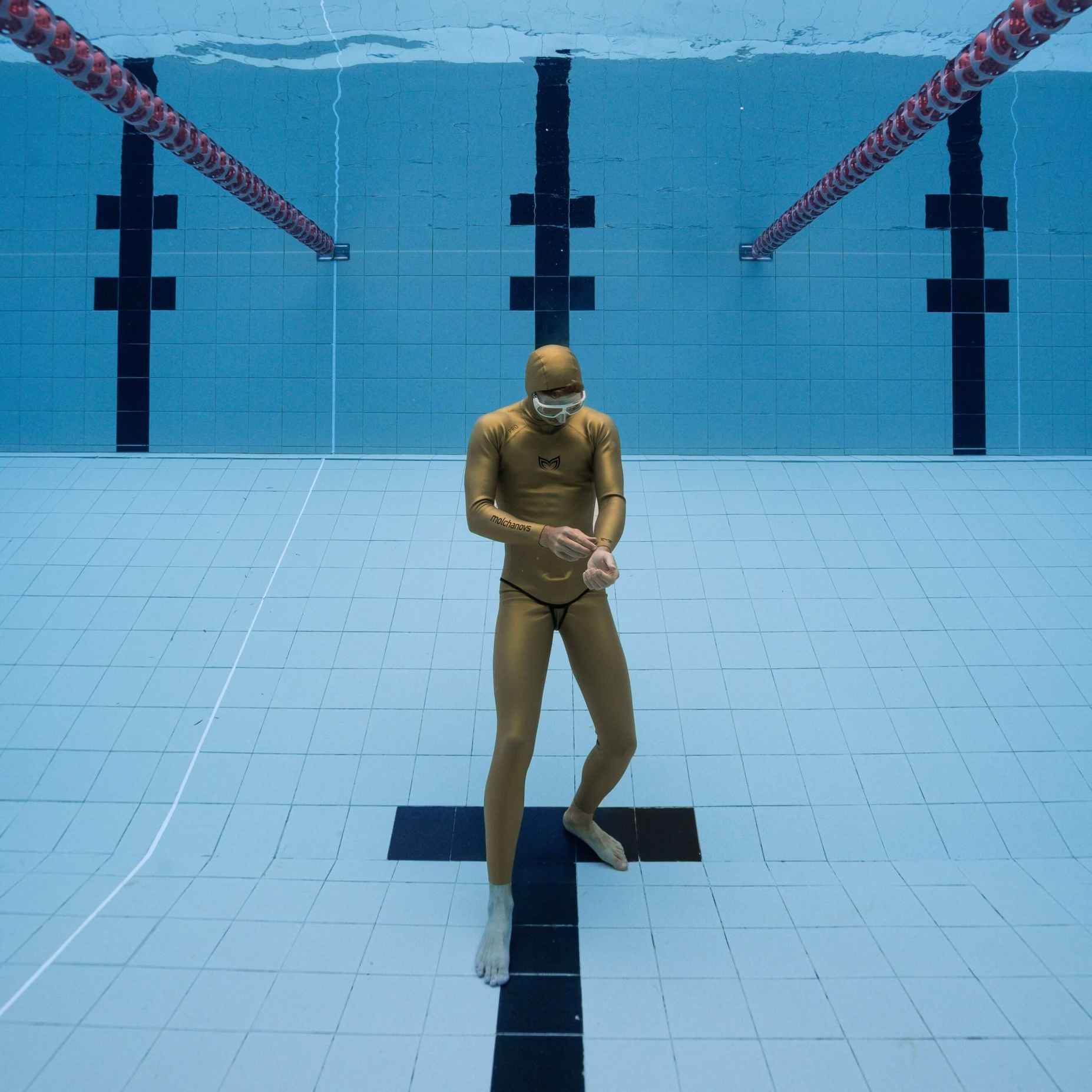Freedive Safely in Times of Covid-19

Covid-19 is not over. It may be over when there is a vaccine which is expected to be developed, produced, distributed and applied in no less than a year from now. Until then it is our duty as freedivers and especially as instructors to avoid contracting and spreading this virus. We would like to ask all instructors to invest the necessary time to screen the document “Freediving in Times of Novel Corona Virus” and conduct according risk management for your specific teaching situation(s).
It is important to follow local rules and regulations at all times! To further assess your personal practice and teaching, the following three general situations may help:
Situation 1: Freedive with a household member
It is safe to practice freediving with someone that you share your household with. If you are in lock-down together, you can also freedive together. This may help you also for your teaching situation: As an instructor you can do skill demonstrations with a household partner. If your students are also organized in teams of two household partners, you are good to go!Still, you need to follow these important guidelines:
- Keep physical distancing from others (other household partner groups) or wear a mask where this is not guaranteed (inside the dive shop, on the dive boat, around the pool, in cars/transports, etc.)
- Do not to share any gear with others.
- Disinfect all gear after usage. The provided document outlines effective ways to do that.
Situation 2: Regions with very low numbers of infections
In certain countries or regions the numbers are under control, very low, and no outside people can travel there. At the time of writing this is the case e.g. in Taiwan, NZ, in certain regions of Greece and in other places. Further, in some places no-one came in for months, hence the whole area can be seen as a “household partnership area“. This is the case for example on small islands, e.g. Long Island (Bahamas).
NOTE: As travel restrictions are lifted, the local situation can change quickly and radically!
The situation is dynamic and as a freediver, especially as an instructor, you must be ready to change your approach accordingly.
Situation 3: Mitigate the Risk of Transmission
If you are NOT in either of the two privileged situations above, you need to thoroughly mitigate the risk of transmission.WARNING. As freedivers - especially as instructors - we need to be aware that SARS-CoV-2 appears to present greater risks to us than in other sports and activities (such as SCUBA). This comes due to robust recovery breathing after breath holds, and buddy/rescue procedures which all require physical proximity. However, this is incompatible with rules of physical distancing.
Further, the use of a snorkel does not protect yourself or a buddy from airborne pathogens. A pocket mask with an appropriate filter to reduce the risk of transmission while providing rescue breaths will not work when wet. These are significant issues, for which we see no satisfactory resolution.
As there is no way to mitigate the risk of transmission in a real life rescue scenario, especially when rescue breaths become necessary, it is thus in no way possible to freedive anywhere close to personal limits. More than ever it must be obvious for all freedivers: LMC or a blackout are not an acceptable outcome for a freedive!
Please read the provided document and contact education@molchanovs.com if you have any questions.
The Molchanovs Freediving Education Board





Leave a comment